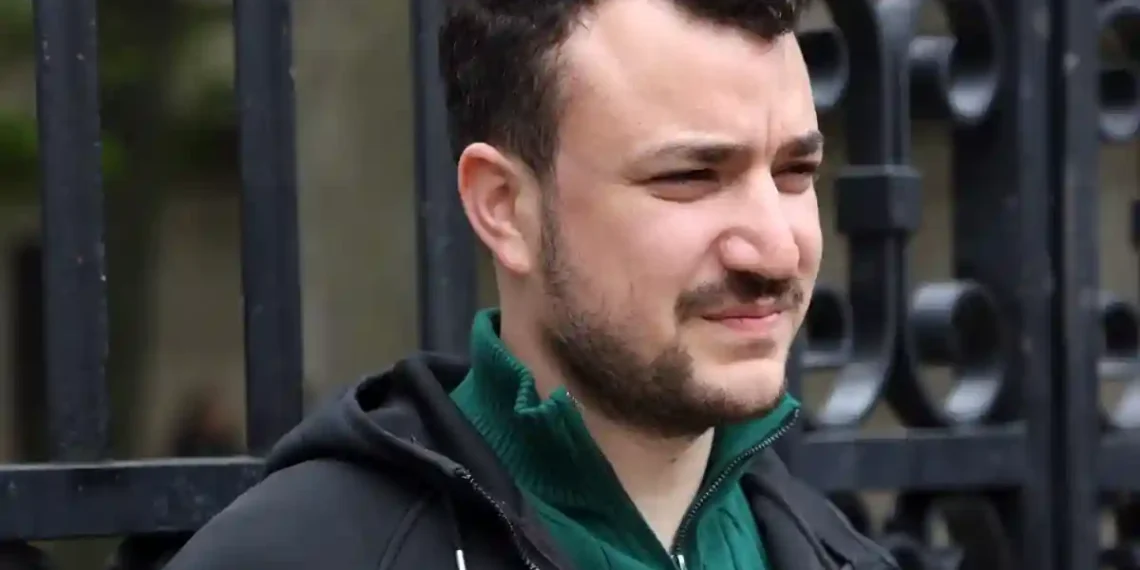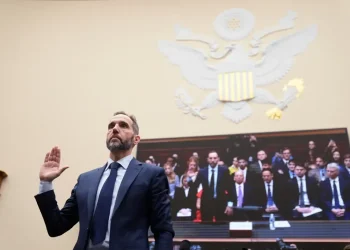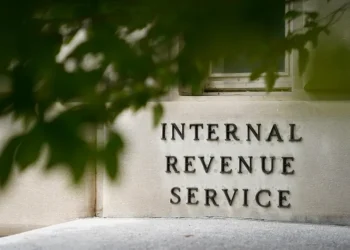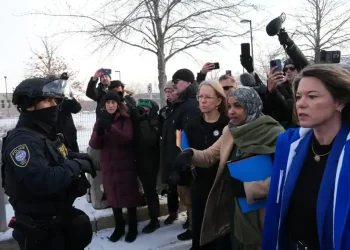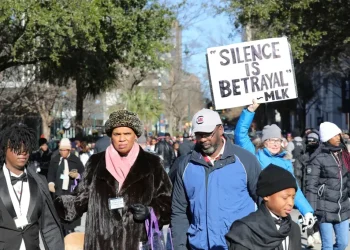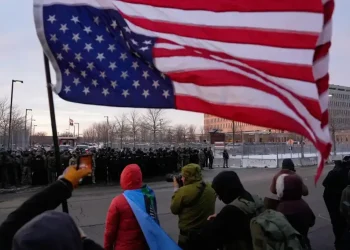Columbia Grad Faces Deportation Over Pro-Palestine Activism, Sparking Free Speech Concerns
BATON ROUGE, La. — A Louisiana immigration judge has ruled that Mahmoud Khalil, a Columbia University graduate and legal permanent U.S. resident, is subject to deportation — not for committing a crime, but for his political beliefs and activism.
The decision, handed down Friday, stems from a controversial memo submitted by Secretary of State Marco Rubio. The memo cites Khalil’s “beliefs, statements, or associations” as grounds for removal, claiming his presence could harm U.S. foreign policy interests — despite no allegations of illegal activity.
Khalil’s legal team says the ruling is a dangerous precedent that threatens constitutional rights.
“Despite the government’s failure to prove that Mahmoud broke any law, the court has decided that lawful permanent residents can have their status revoked for pro-Palestine advocacy,” attorneys said after the hearing. “This is a blatant violation of the First Amendment.”
Arrest and Detention
Khalil, a prominent Palestinian activist, was arrested last month by federal agents outside his Columbia University apartment. His arrest followed a Trump-era deportation order, and he has since been transferred to a detention center in Louisiana, far from his pregnant wife and legal proceedings in New Jersey.
“Neither due process nor fairness were present today or in this whole process,” Khalil told the court. “This is exactly why the Trump administration has sent me to this court, 1,000 miles away from my family.”
A Memo Without Charges
The key piece of evidence? A memo from Rubio submitted just hours before the hearing. It contains no criminal charges but references Khalil’s role in protests deemed disruptive and “antisemitic” by federal officials. Khalil’s attorneys fiercely reject that characterization.
“The only evidence is the Rubio letter — and it doesn’t contain a single criminal allegation,” said Marc Van Der Hout, one of Khalil’s immigration attorneys. “There is zero else.”
He added, “Criticizing Israel for the slaughter in Gaza is being painted as antisemitism. That’s what this case is really about.”
Khalil’s case hinges on an obscure provision of immigration law that allows the Secretary of State to order deportation if an individual’s beliefs or associations are deemed harmful to U.S. foreign policy. Legal experts call this a rare and troubling move.
“This provision has only been used 15 times out of over 11 million cases — and never, as far as we know, against someone for protected political speech,” said NYU law professor Adam Cox, who co-authored an amicus brief in Khalil’s defense.
Legal scholars warn the ruling could have ripple effects on college campuses and civil liberties nationwide.
“It is chilling to all speech rights when the federal government’s memo sets out no criminal charges but claims one student protestor can affect U.S. foreign policy,” said Gloria J. Browne-Marshall, a constitutional law professor at John Jay College.
Khalil’s wife, Noor Abdalla, also spoke out.
“My husband is a political prisoner being deprived of his rights because he believes Palestinians deserve equal dignity and freedom,” she said. “There is nothing the government can say that can silence that truth.”
While Khalil may not be deported immediately — he still has a pending federal case in New Jersey — his lawyers plan to appeal the Louisiana ruling. They are also seeking bail and a court injunction that would allow his release as he awaits further legal proceedings.
In the broader immigration crackdown, Khalil is not alone. Over 400 students, faculty, and researchers have had their visas revoked this year. His case may set a powerful precedent for what comes next.
This article was rewritten by JournosNews.com based on verified reporting from trusted sources. The content has been independently reviewed, fact-checked, and edited for accuracy, neutrality, tone, and global readability in accordance with Google News and AdSense standards.
All opinions, quotes, or statements from contributors, experts, or sourced organizations do not necessarily reflect the views of JournosNews.com. JournosNews.com maintains full editorial independence from any external funders, sponsors, or organizations.
Stay informed with JournosNews.com — your trusted source for verified global reporting and in-depth analysis. Follow us on Google News, BlueSky, and X for real-time updates.
